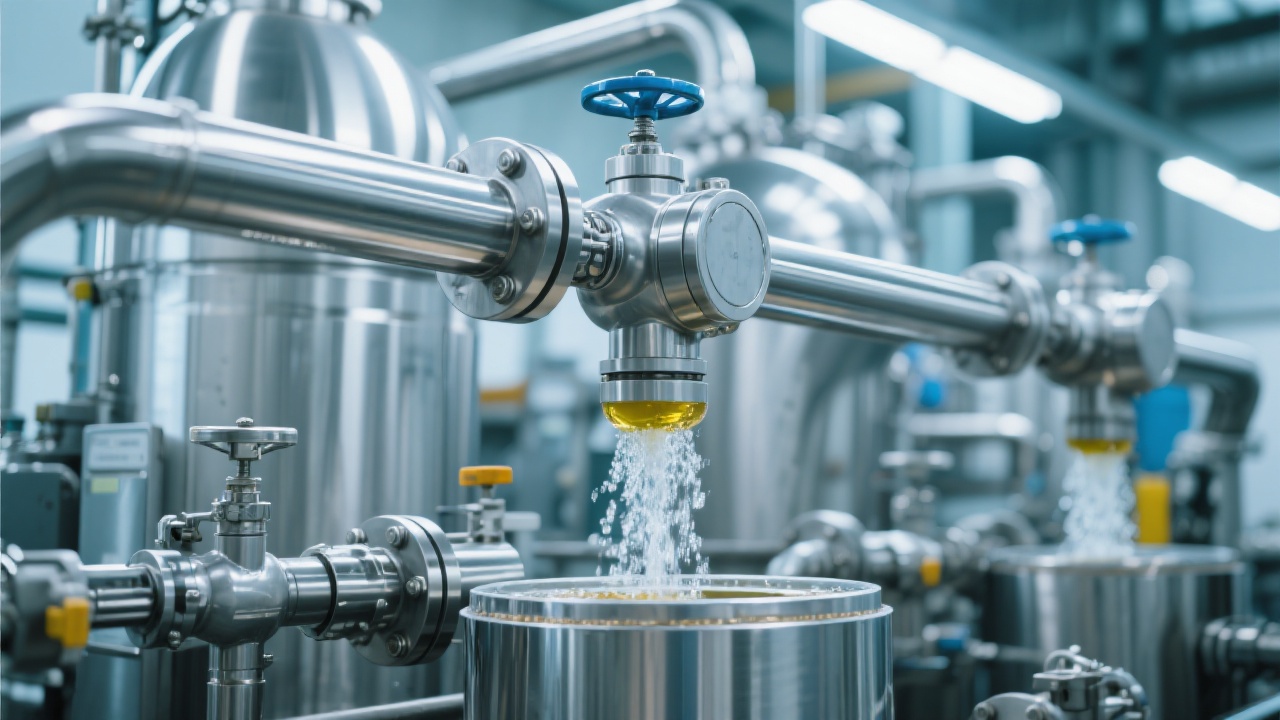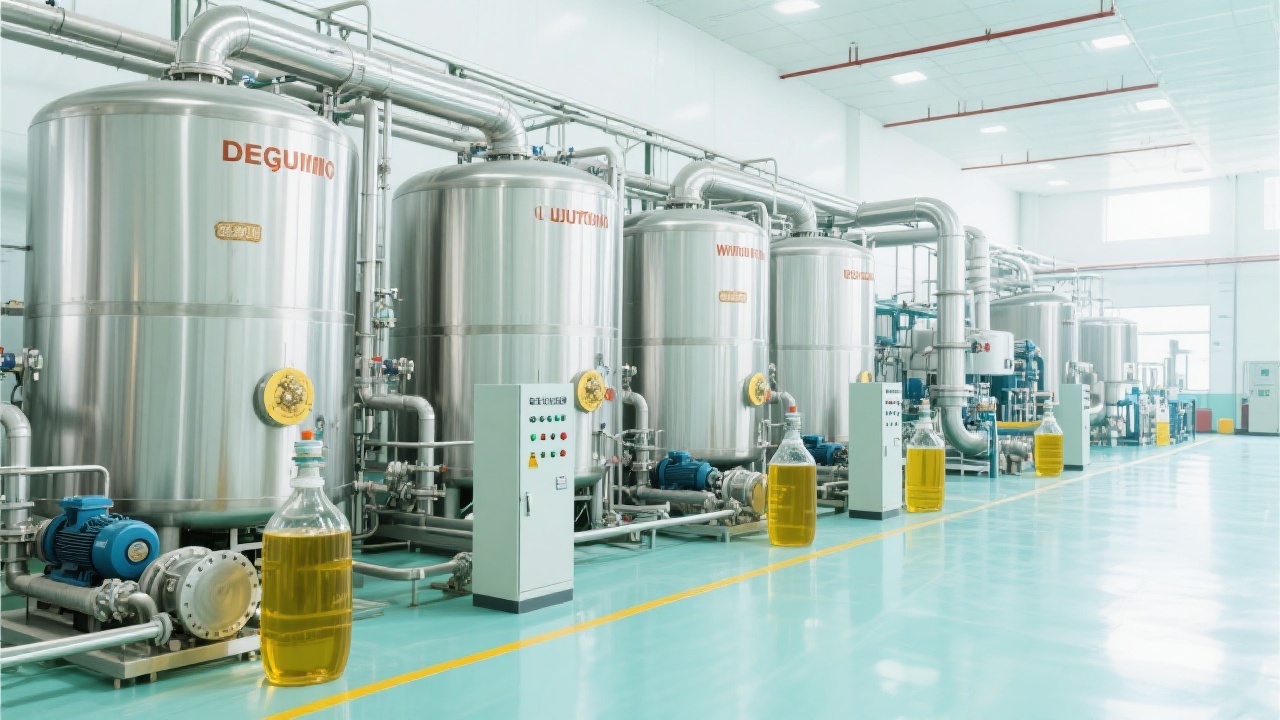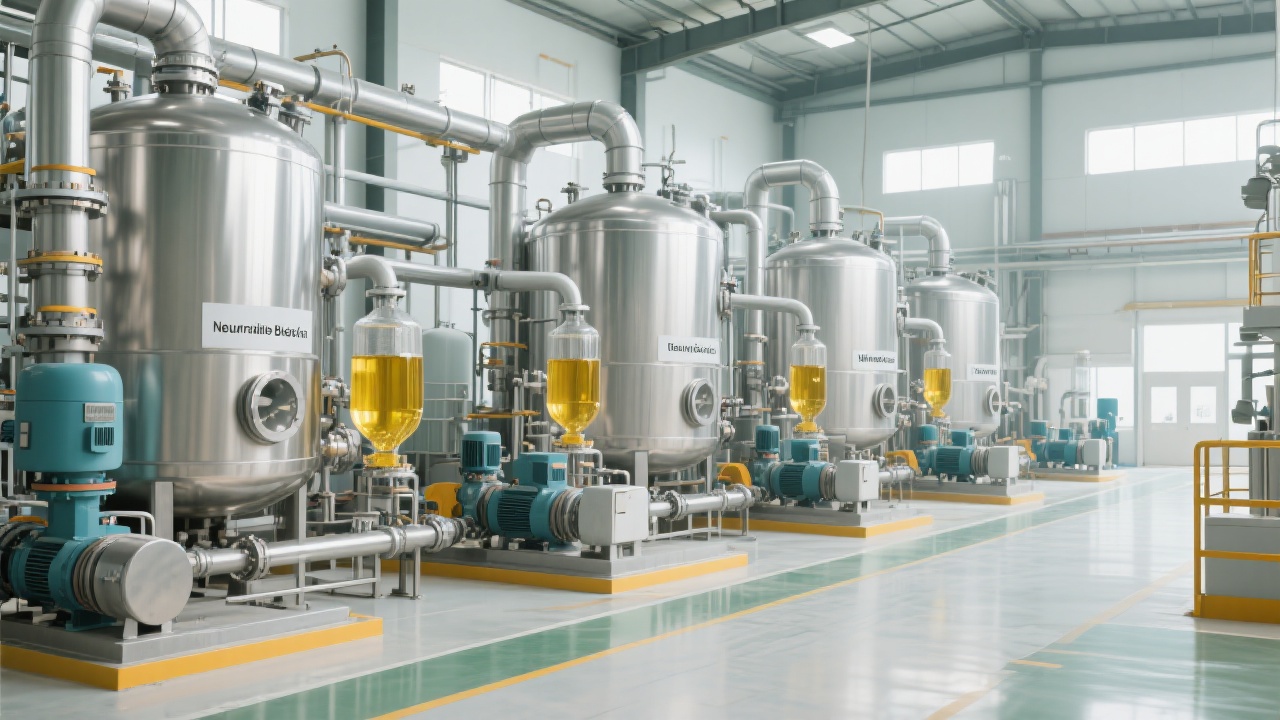
Selecting the appropriate soybean oil refining equipment based on production capacity is a critical decision for soybean oil manufacturers. This guide aims to provide in - depth insights into the key technical aspects of soybean oil refining and practical equipment selection principles.
Degumming is the first step in soybean oil refining. Phospholipids and other impurities in crude soybean oil need to be removed. The degumming process usually involves adding water or acid to the crude oil. The degumming equipment should have high - efficiency mixing and separation functions. For example, a well - designed degumming tank can ensure thorough mixing of the oil and the degumming agent. The capacity of the degumming equipment should be matched with the overall production capacity. Small - scale oil mills may choose a degumming tank with a capacity of 1 - 5 tons per day, while medium - scale ones may require a tank with a capacity of 5 - 20 tons per day, and large - scale oil mills may need a tank with a capacity of over 20 tons per day.

Neutralization is used to remove free fatty acids from the degummed oil. This process typically involves adding an alkaline solution to the oil. The neutralization equipment should be able to accurately control the addition of the alkaline solution and ensure good contact between the oil and the alkali. The performance of the neutralization equipment affects the quality of the refined oil. Energy - saving and high - efficiency neutralization reactors are recommended. According to industry standards, the neutralization efficiency should reach over 90%.
Bleaching is to remove pigments and other impurities in the oil. A bleaching tower is commonly used in this process. The bleaching tower should have a large contact area between the oil and the bleaching earth to ensure effective pigment removal. The bleaching process usually operates at a certain temperature and pressure. Different bleaching towers have different capacities and performance parameters. For small - scale oil mills, a bleaching tower with a capacity of 1 - 10 cubic meters may be sufficient, while medium - and large - scale oil mills may need larger - capacity bleaching towers.

Deodorization is the process of removing odorous substances from the oil. A deodorizer is the key equipment in this stage. The deodorizer should be able to operate under high - vacuum conditions to effectively remove volatile odor components. Energy - saving deodorizers are becoming more and more popular in the market. The deodorization temperature and time are important parameters that affect the quality of the refined oil. Industry standards require that the deodorization process can reduce the odor value of the oil to an acceptable level.
Winterization is used to remove waxes and other high - melting - point substances from the oil. This process is especially important for producing high - quality soybean oil. The winterization equipment should be able to accurately control the cooling rate and temperature to ensure the separation of waxes. The capacity of the winterization equipment should also be matched with the overall production capacity.
Small - scale oil mills usually have a production capacity of less than 10 tons per day. For these mills, simple and cost - effective equipment is preferred. The degumming tank, neutralization reactor, bleaching tower, deodorizer, and winterization equipment can be selected with relatively small capacities. However, the equipment should still meet the basic quality requirements. For example, a small - scale deodorizer with a capacity of 1 - 5 tons per day can be used. The equipment configuration for small - scale oil mills should focus on low investment and easy operation.
Medium - scale oil mills have a production capacity of 10 - 50 tons per day. These mills require more advanced and efficient equipment. The equipment should have better performance in terms of energy - saving and production efficiency. For example, a medium - scale bleaching tower with a capacity of 10 - 20 cubic meters can be used. The equipment configuration for medium - scale oil mills should balance cost and performance.
Large - scale oil mills have a production capacity of over 50 tons per day. These mills need high - end and large - capacity equipment. The equipment should be highly automated and energy - efficient. For example, a large - scale deodorizer with a capacity of over 50 tons per day can be used. The equipment configuration for large - scale oil mills should focus on high - quality production and long - term stability.
| Production Scale | Degumming Tank Capacity (tons per day) | Bleaching Tower Capacity (cubic meters) | Deodorizer Capacity (tons per day) |
|---|---|---|---|
| Small - scale | 1 - 5 | 1 - 10 | 1 - 5 |
| Medium - scale | 5 - 20 | 10 - 20 | 10 - 50 |
| Large - scale | Over 20 | Over 20 | Over 50 |
When selecting soybean oil refining equipment, energy - saving and environmental protection indicators should be considered. Energy - saving equipment can reduce production costs in the long run. For example, using high - efficiency motors and insulation materials can save energy. Environmental protection requirements include reducing waste emissions and using environmentally friendly materials. In addition, the equipment should be easy to maintain. Regular maintenance can ensure the stable operation of the equipment and extend its service life. For example, the bleaching tower should be cleaned regularly to prevent the accumulation of impurities.

Let's take a small - scale oil mill as an example. This oil mill initially used a set of low - cost but inefficient equipment. The production capacity was limited, and the quality of the refined oil was not high. After upgrading to a more suitable set of equipment with a degumming tank capacity of 3 tons per day, a bleaching tower capacity of 5 cubic meters, and a deodorizer capacity of 3 tons per day, the production efficiency increased by 30%, and the quality of the refined oil also improved significantly.
For a large - scale oil mill, by choosing energy - saving and high - performance equipment, it was able to reduce energy consumption by 20% and improve the production capacity by 25%. These case studies show that choosing the right equipment according to production capacity can bring significant benefits to oil mills.
Our company offers high - quality soybean oil refining equipment with advanced technology and high cost - effectiveness. Whether you are a small - scale or large - scale oil mill, we can provide customized solutions to meet your specific needs. If you are interested in our products, please click here to consult.

